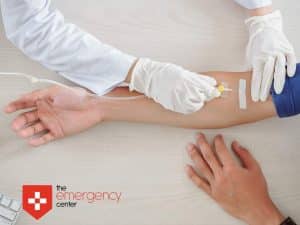Covid -19 – When To Visit The Emergency Room
If you’ve been diagnosed with COVID-19, you should know when to visit the emergency room. Many people with COVID-19 will only experience mild to moderate symptoms, but some can have a more severe case.
Depending on the severity of your illness, you may be able to manage your symptoms at home by taking over-the-counter medications, increasing your fluid intake and getting more rest. However, there are some symptoms that should be evaluated in an emergency room.
Symptoms and risk factors

COVID-19 can cause a variety of symptoms, but the most common are:
-
Fever or chills
-
Cough
-
Shortness of breath or difficulty breathing
-
Fatigue
-
Body aches
-
Headache
-
New loss of taste or smell
-
Sore throat
-
Sinus congestion or runny nose
-
Nausea or vomiting
-
Diarrhea
When to seek emergency care
Here are some symptoms that should be evaluated at your nearest ER:
-
Shortness of breath while resting
-
A persistent or worsening cough, fever and/or difficulty breathing
-
A change in mental status
-
Persistent chest pain or pressure
-
Extreme sleepiness, trouble waking up or difficulty staying awake
-
Pale, gray or blue-colored skin, lips or nail beds
These symptoms can be life-threatening. If you experience any of these, you should seek immediate medical care at your closest emergency room.
What Our Patients are Saying About Us
My visit to the emergency center of San Antonio was amazing. I was seen right away for sciatica pain. Dr. Styskal was amazing. I was treated right away and sent home with my medication. I wish more facilities would practice this without you having to make an additional stop at a pharmacy for medication. I know five stars is the highest I can give but they deserve 100+ stars.
Lizette M. ★★★★★
I was skeptical about going to the Emergency room, because for me ER’s have a bad reputation. My experience here was one of the best experience I’ve ever had. Keith at the front desk was very nice and went above and beyond for me. I forget my insurance card and wanted to know how much my co pay would be. He looked me up with no issue, brought my a wheelchair to ease my pain, as well as started
Mecia T. ★★★★★
My first time coming here, was greeted immediately by Keith and Debbie and helped. When in the back, Nichole wasted no time getting my vitals, checking on how I was feeling, and was super friendly and comforting while doing so. Dr. Erdner was very nice, and informative. Johnny got my CT scan quickly and made the process easy, and fast. All together the staff made my visit a great experience.
Nicole D. ★★★★★


